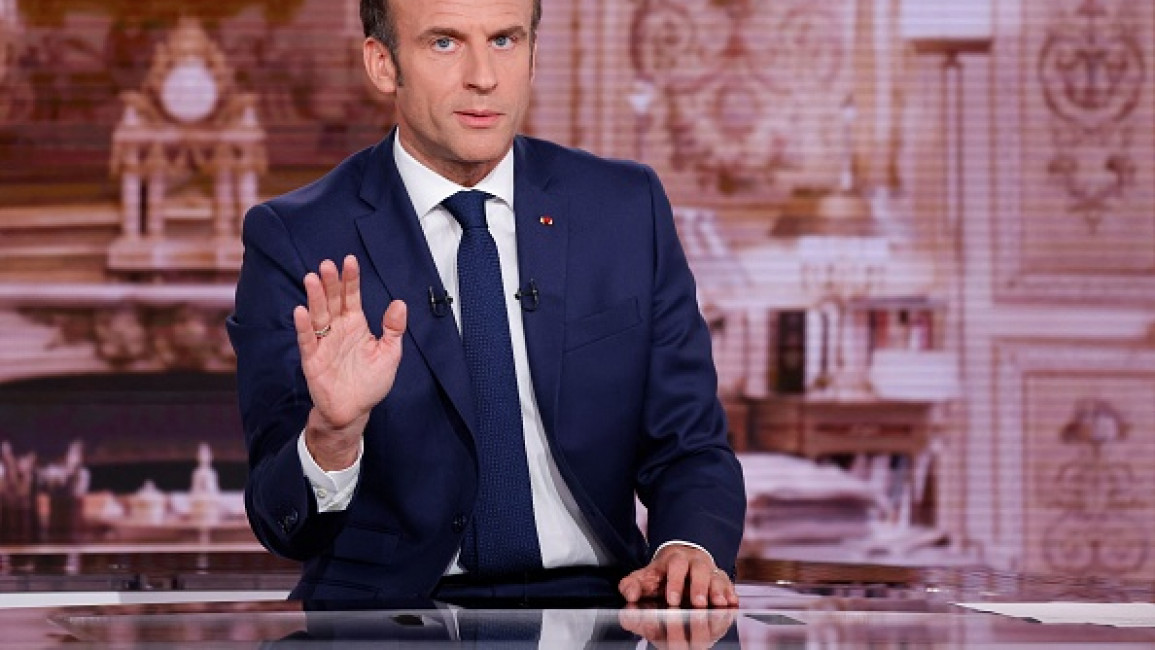France elections 2022: Preparation for first round of tight Macron re-election bid
France on Saturday prepared for the first round of presidential elections projected to produce a run-off rematch between President Emmanuel Macron and far-right leader Marine Le Pen that will be far tighter than their duel five years ago.
All further political activity by candidates was banned on the final day before polls open in mainland France at 06:00 GMT on Sunday, after a campaign overshadowed by Russia's invasion of Ukraine.
French overseas territories will begin voting earlier to take account of the time difference, starting with Saint Pierre and Miquelon off the coast of Canada at 10:00 GMT Saturday.
Territories in the Caribbean, the Pacific and finally the Indian Ocean will follow before polling stations open in mainland France.
Polls predict that Macron will lead Le Pen by a handful of percentage points in round one, with the top two going through to a second round on 24 April.
But analysts warn that the outcome remains highly volatile with uncertainty remaining over turnout and some observers fearing a quarter of the electorate may stay away in a possible record boycott of the vote.
Far-left candidate Jean-Luc Melenchon is snapping at their heels in third and still fancies his chances of reaching the second round at the expense of Le Pen or even- in an extraordinary upset- Macron himself.
Although her opponents accuse her of being an extremist bent on dividing society, Le Pen has with some success during the campaign sought to show a more moderate image and concern with voters' daily worries such as rising prices.
Macron by contrast has campaigned relatively little, by his own admission entering the election campaign later than he would have wished due to the war in Ukraine.
If Macron and Le Pen as forecast reach the second round, analysts predict that their clash will be far tighter than in 2017 when the current president thrashed his rival with 66 percent of the vote.
"There is an uncertainty ahead of the first round," said French political scientist Pascal Perrineau, pointing to unprecedently high numbers of voters who were still undecided or who had changed their minds during the campaign as well as absentee voters.
Analysts fear that the 2002 record of the numbers of French voters boycotting a first round of 28.4 percent risks being beaten, with the 2017 absentee rate of 22.2 percent almost sure to be exceeded.
"We have experienced a strange campaign that was at odds with what we experienced in the past presidential elections," Frederic Dabi, director of the Ifop polling institute, told AFP.
The stakes of the election are high for Macron, who came to power aged 39 as France's youngest president with a pledge to shake up the country.
He would be the first French president since Jacques Chirac in 2002 to win a second term and thus cement a place in the country's history.
If he wins he would have a five-year mandate to impose his vision of reform which would include a crack at reducing the pension age in defiance of union anger.
He would also seek to consolidate his position as the undisputed number one in Europe after the departure of German chancellor Angela Merkel.
A Le Pen victory would however be seen as a victory for right-wing populism and send shockwaves across Europe and markets.
The candidates of France's traditional parties, the right-wing Republicans and the Socialists on the left, are facing a debacle on election night, continuing a shake-up of French politics that began when Macron took power.
Greens candidate Yannick Jadot, the Republicans' Valerie Pecresse and the flagging Socialist nominee Anne Hidalgo appear certain to be ejected in the first round.
Far-right former TV pundit Eric Zemmour made a stunning entry into the campaign last year but lost ground, and analysts say he has aided Le Pen by making her appear more moderate.
Even with the outcome of the first round still the subject of some uncertainty, attention is already turning to the second round and who the defeated first-round hopefuls will back.
Analysts question whether Macron would enjoy the same support from a broad anti-far right "Republican front" coalition that helped him win in 2017 and allowed Jacques Chirac to demolish Marine Le Pen's father Jean-Marie in 2002.
"The Republican front hasn't been what it used to be for a while," the director of the Jean-Jaures Foundation, Gilles Finchelstein, told AFP, adding it could be source of votes for Macron in a round two but it would be an "illusion" to think it were enough.


![President Pezeshkian has denounced Israel's attacks on Lebanon [Getty]](/sites/default/files/styles/image_684x385/public/2173482924.jpeg?h=a5f2f23a&itok=q3evVtko)



 Follow the Middle East's top stories in English at The New Arab on Google News
Follow the Middle East's top stories in English at The New Arab on Google News


